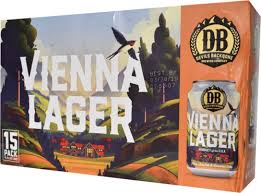

I think it has been an influential beer for many American brewers. It can be dynamic and change over time with young and old versions excellent for different reasons. "It can balance extraordinary with drinkability. "It’s a Belgian Trappist beer but also its own thing entirely," he says. I see us brewing a wide variety of beer from strong to light but all with purpose of the right time and place."ĭespite his devotion to lagers, Oliver says if he was stranded forever on an island with cases of only one beer, he would probably want Orval. "I see us producing certain beers that offer a healthier craft experience focused on a combination of using quality ingredients, lower calorie content and lower alcohol while not sacrificing flavor. "I see o ur future as continuing to brew true-to-style beers like Vienna Lager, Gold Leaf Lager, Black Lager and Danzig Baltic Porter which are seeing growing interest because of their approachability, integrity and timelessness in a crowded field of busy beer trends," he says. Under Anheuser-Busch's corporate umbrella, the future of many of Devils Backbone's beers may not be much different than the present. We still practice our craft like before, just with better tools now." I've never had more ideas on new beers or approaches than now. That's always the point, but having the resources to do it is another story. The support we receive from capital improvements to technical support allows us to make our beer better than ever.

"I advocated for the sale, because I would rather work for a brewery than an investment bank. "It was a good place to work before and a better place now," he says. Oliver says Devils Backbone has "changed for the better" since the acquisition. The acquisition was reviewed by the Department of Justice's Antitrust Division which concluded in September 2016 that the "competitive implications" of the purchase were " too uncertain at this time to warrant further investigation." Some craft beer lovers criticized the sale, and Crandall had to leave his position on the board of directors of the Brewers Association, the national trade group representing independent craft brewers.

In April 2016, Steve Crandall told the Chicago Tribune that "t he investment in capacity was stretching us pretty darn thin, to the point that we were putting money into capacity versus filling the potholes in our road." The acquisition by Anheuser-Busch, which has acquired numerous formerly independent craft breweries, occurred after Devils Backbone execs realized they couldn't fund the craft brewery's rapid growth. We run 16 taps at our original brewpub Basecamp (in Roseland, Virginia) and our production Outpost brewery (in Lexington, Virginia), and that is not enough." Of the four original mainstays, all are now bottled and available year-round. "I set up the initial tap list to have 10 beers on tap: four mainstays or flagship beers and six ever-changing brews. When Devils Backbone founders Steve and Heidi Crandall launched the brewery in 2008, Oliver says his aim was to create a “brewer’s brewery and explore as many styles and combinations of beers as possible.

Devils Backbone beers are now sold in 13 states. Vienna Lager is Devil Backbone's best-selling bee, Oliver says, and is part of the brewery's most widely available "core lineup" which also includes Gold Leaf Lager, Black Lager and Trail Angel Weiss.


 0 kommentar(er)
0 kommentar(er)
